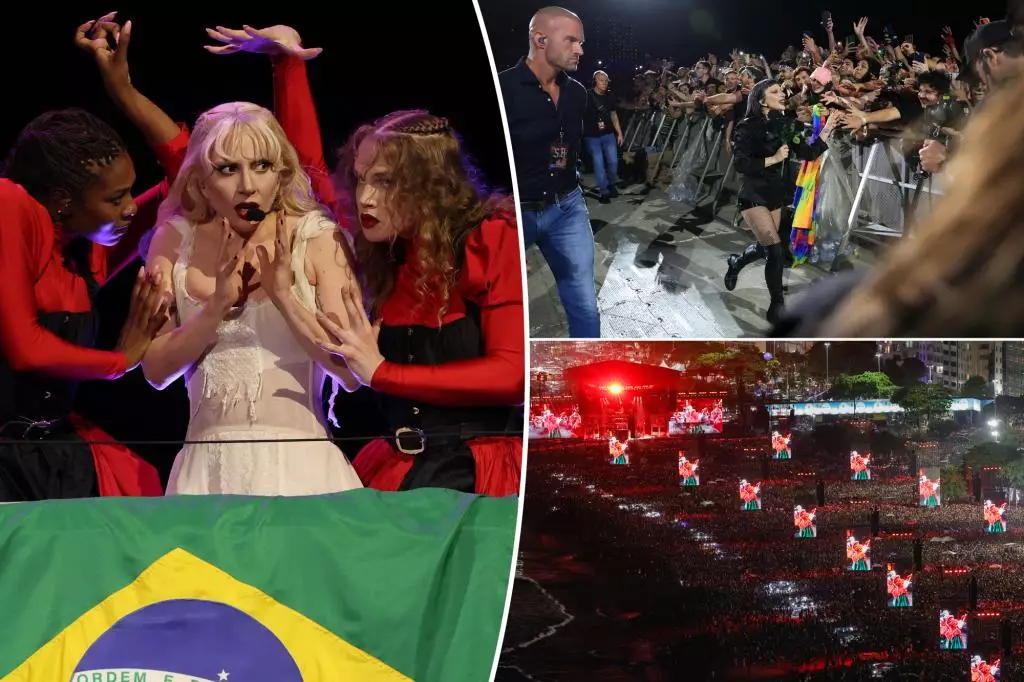In recent events, what should have been a jubilant celebration of music turned into a terrifying brush with chaos during Lady Gaga’s concert in Rio de Janeiro. Local authorities revealed that a hate group masquerading as “Little Monsters,” the affectionate nickname for Gaga’s devoted fans, was allegedly plotting a malignant attack to disrupt the event. The unfolding narrative sheds light on the troubling intersection of pop culture, radical ideologies, and the vulnerability of public spaces.
The Brazilian police uncovered plans for violence, including improvised explosives and Molotov cocktails, targeting the gathering at Copacabana Beach, which was anticipating around 2.5 million attendees. This is not solely a story about a thwarted attack; it symbolizes a disturbing trend where fandom is manipulated for nefarious purposes. In our era of digital communication, the ease with which extremists can infiltrate genuine communities for recruitment raises alarming questions about the safety of public events and the intentional distortion of fan identities.
Authorities vs. Accountability
What is equally concerning is the apparent breakdown in communication between law enforcement and event organizers. Reports indicate that Lady Gaga and her team were not made aware of the threats until after the concert, raising serious concerns about accountability and preparedness on the part of local authorities. How can we expect artists to foster safe environments for their fans when the systems meant to protect them are, at times, ineffectual?
This incident reflects a larger failure in safeguarding public events that attract masses. With each concert, festival, and public gathering, there comes the looming shadow of potential violence, making it imperative for law enforcement to adopt proactive strategies. A thorough review of protocols involving communication with artists and their teams during potentially dangerous situations must become a priority.
The Resilience of the Human Spirit
Despite the chaos, Lady Gaga’s message after the concert remained uplifting. She highlighted the immense joy and pride she felt in performing for an audience that could have easily been victims of violence. Ironically, her unaffected celebration of the event only emphasizes the resilience of the human spirit amidst looming threats. It underscores the notion that light often illuminates even the darkest scenarios—the concert became a testament to unity and love, a counter-response to the hate that sought to infiltrate it.
The pop star’s gratitude towards her fans, who collectively represented a historically significant attendance, elicits a heartfelt reminder of the power of community. Gaga’s message transcended the disturbing backdrop, transforming it into a moment of solidarity and strength. It suggests that while threats exist, so does an unwavering desire for connection and joy—the essence of what fandom should embody.
Our collective responsibility is to ensure that future experiences can cultivate love without the toxicity of radical extremism. As audiences become increasingly large and diverse, embracing open dialogues about security and community can ensure that music remains a powerful force for good. The transformative power of music should know no bounds, regardless of the shadows lurking nearby.

